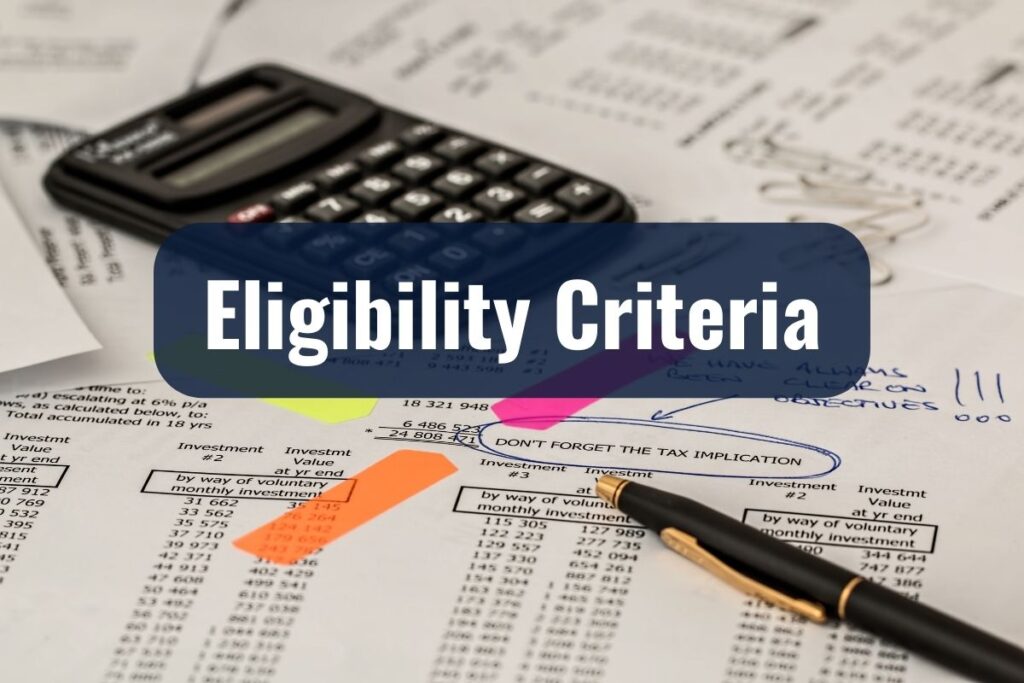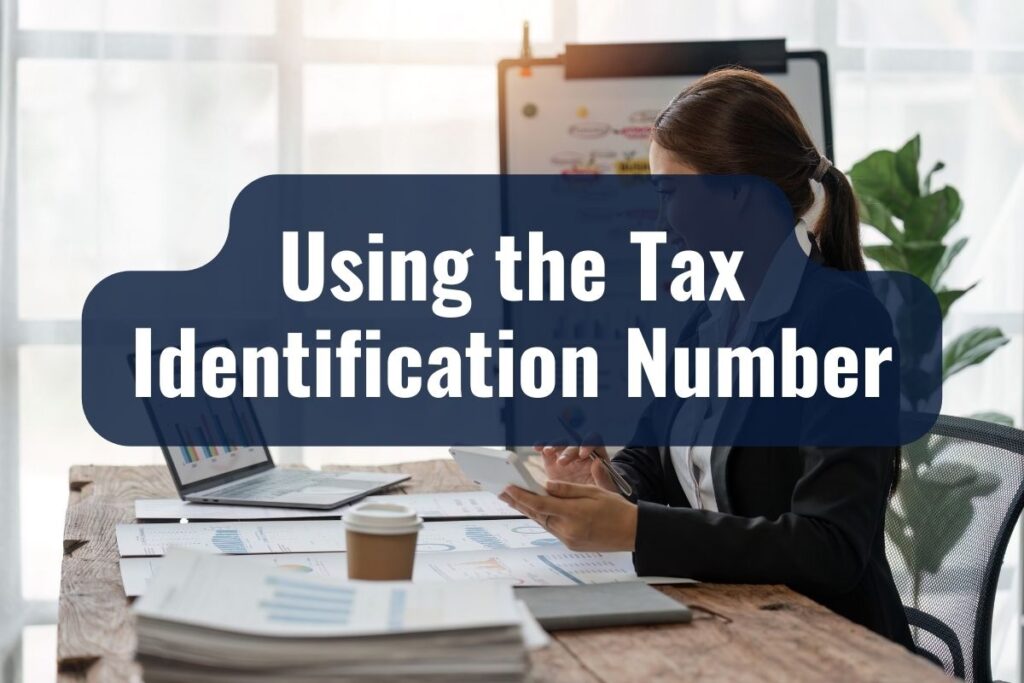Living in a foreign country often comes with its own set of challenges, especially regarding complex systems such as taxation. In France, the cornerstone of this system for both nationals and foreigners alike is the Tax Identification Number. Commonly known as the “Numéro Fiscal” in French, this number serves as an individual’s unique identifier within the French tax administration.
This article delves into the significance of the Tax Identification Number in France and highlights the importance for foreigners to obtain it, ensuring a smooth financial journey during their stay in the country.
KEY TAKEAWAYS
- The Tax Identification Number (TIN) is vital for anyone with tax obligations in France.
- Eligibility for a TIN in France is based on residence status and economic ties.
- The procedure to obtain a TIN involves registration, document submission, and retrieval of the number.
- The TIN is essential for a range of financial and administrative tasks in France.
- Losing the TIN requires immediate action with the local tax office for retrieval.
- Familiar challenges, like language barriers and documentation errors, have clear solutions.
Understanding the Tax Identification Number
Every country has its system of tracking and managing tax obligations for its residents. In France, the Tax Identification Number (TIN), or “Numéro Fiscal”, performs this essential function.
Definition and Purpose of the Tax Identification Number
The Tax Identification Number is a unique code assigned to individuals for tax purposes. Essentially, it’s your identity in the eyes of the French tax system. It differentiates every taxpayer, ensuring accuracy and efficiency in tax collection and management. This number is vital not only for paying your taxes but also for any interactions you might have with the French tax administration.
Its Role in the French Tax System
The French tax system is comprehensive, and the Tax Identification Number acts as the key to unlock many of its components. Here’s how.
Record Keeping: All your tax records, filings, and payments are stored and tracked using your TIN. It ensures that your financial transactions and obligations are cataloged under one unique identifier.
Tax Returns: When filing annual tax returns, your TIN is essential. It ensures that the tax authorities can quickly process your returns, allocate any refunds, or address any underpayments.
Accessing Online Services: France offers a variety of online tax services. To access these platforms, like declaring income or viewing tax statements, you’ll need your TIN to authenticate your identity.
Eligibility Criteria

In France, tax obligations aren’t solely dependent on citizenship. Rather, they are largely determined by one’s residence status and economic ties. Thus, understanding who is required to obtain a Tax Identification Number becomes essential for foreigners to ensure compliance.
| Eligibility Criteria | Description |
| Residents | Primary residence or primary economic interests in France. |
| Non-residents with French Income | Income derived from French sources, e.g., properties or businesses. |
| Foreign Companies | Companies with operations, branches, or revenue generation in France. |
| Property Owners | Owners of property in France, even without income generation. |
| Inheritance & Gifts | Receipt of inheritance or sizable gifts with potential tax implications. |
| Starting a Business | Entrepreneurs or entities registering or operating a business in France. |
Who Needs to Get a Tax Identification Number in France?
Essentially, anyone who has tax obligations in France needs to obtain a Tax Identification Number.
Residents
If you have established France as your primary residence, regardless of your nationality, you are deemed a tax resident. This means spending more than 183 days in France within a calendar year or having your primary economic interests (like your primary occupation or a significant portion of income) in the country.
Non-residents with French Income
Even if you don’t live in France full-time, if you derive income from French sources – this could be from properties, businesses, or any other economic activity in France – you will still have tax obligations and therefore require a TIN.
Foreign Companies Operating in France
If a foreign company has operations, branches, or generates revenue in France, it will need a Tax Identification Number for its financial transactions and tax compliance.
Specific Circumstances or Situations Where It Becomes Necessary
Apart from the primary scenarios outlined above, there might be specific situations where obtaining a TIN becomes essential:
- Owning Property: If you own property in France, even if you don’t derive income from it or live there, you may still have to pay certain taxes, requiring a TIN.
- Inheritance and Gifts: Receiving an inheritance or sizable gifts in France might have tax implications, necessitating the need for a Tax Identification Number.
- Starting a Business: If you’re starting or registering a business in France, one of the first steps will involve obtaining a TIN, as it will be critical for all business-related tax matters.
The Tax Identification Number acts as a bridge between individuals or entities and the French tax administration. It’s an essential component for anyone with financial dealings or interests in France, ensuring that they remain in line with the country’s tax regulations.
Procedure to Obtain a Tax Identification Number
For foreigners, getting a grasp on the procedures in a new country can be challenging. However, France has streamlined the process to obtain a Tax Identification Number, ensuring clarity and efficiency. Let’s delve into the necessary steps and requirements for this process.
Pre-requisites: Documents and Information Required
Before initiating the application, ensure you have the following:
- Proof of Identity: Valid passport or national identity card.
- Proof of Residence: A utility bill, rent receipt, or a residence certificate will suffice. Ensure it’s recent (within the last three months) and has your current address in France.
- For Non-residents with French Income: Relevant documents that prove your income source in France, such as rental agreements or business contracts.
- For Businesses: Registration documents of the company and details about its operations in France.
Step-by-Step Guide to the Application Process
- Initial Registration: If you’re newly settled in France or have started to earn income, you’ll first need to register with the local tax office. This can be done by visiting in person or, in some areas, initiating the process online.
- Fill out the Required Forms: Once registered, you’ll be provided with specific forms, primarily the “déclaration de revenus” (income declaration). This document is crucial as it helps the tax authorities understand your financial status and thus allocate a TIN accordingly.
- Submission: After duly filling out the forms, submit them either in person at the local tax office or online, depending on the options available and your preference.
- Receipt of the Tax Identification Number: Once your application is processed, you’ll receive a tax assessment notice, “avis d’imposition.” Your Tax Identification Number will be prominently displayed on this document. It’s essential to store this document safely, as it’s your official confirmation of your TIN.
- Online Option: For those who prefer online transactions or cannot visit the tax office in person, France’s tax administration website allows for online registrations. The process remains largely the same, requiring digital copies of your documents and online forms to be filled out. Post submission, you can monitor the progress of your application and eventually access your TIN digitally.
Using the Tax Identification Number

Having acquired the Tax Identification Number, one must understand its applications within the broader framework of French financial and administrative systems. Knowing when and how to use this number ensures a seamless experience when managing fiscal responsibilities in France.
Situations and Processes Where the Number Will Be Required
The Tax Identification Number isn’t just a requirement for annual tax filings; its usage is interwoven into multiple financial and administrative activities.
Annual Tax Returns
When declaring your yearly income to the French tax authorities, your TIN is essential. It authenticates your tax filings and ensures accurate processing.
Banking and Financial Transactions
Opening a bank account, securing loans, or any significant financial transaction in France often necessitates the provision of your TIN.
Property Transactions
Whether you’re selling, renting out, or buying a property, your Tax Identification Number will be needed. It authenticates your identity and ensures that any related tax implications are correctly addressed.
Business Activities
For those engaged in business activities, whether as an entrepreneur or an investor, the TIN will be used in various capacities—from business registration to financial transactions and even employee management.
Access to Public Services
In some instances, especially when financial assessments are involved, accessing certain public services might require you to provide your TIN.
Importance of Keeping It Confidential
Much like any other personal identification number, the Tax Identification Number is sensitive information. Its misuse can lead to fraudulent activities or identity theft. Here are some guidelines to ensure its safety:
- Limited Sharing: Only provide your TIN when absolutely necessary. It’s prudent to understand why an entity or individual requires it before divulging the information.
- Digital Safety: If accessing or storing your TIN online, ensure you use secure networks and trusted devices. Regularly update passwords and avoid accessing sensitive information on public computers or open networks.
- Physical Safety: Any document displaying your TIN, such as the tax assessment notice, should be stored securely. Avoid carrying such documents unless necessary for specific transactions or processes.
What If You Lose Your Tax Identification Number?
Life is unpredictable, and sometimes, despite our best efforts, important documents or information can be misplaced. If you happen to lose your Tax Identification Number or the document it’s mentioned on, there’s no need for undue stress. France has a systematic approach to address such situations.
Process of Retrieval or Reissue
- Contact the Local Tax Office: The first step is to promptly reach out to your local tax office. They have records of all Tax Identification Numbers issued and can guide you on the immediate steps.
- Identity Verification: Before any information is provided or actions taken, you’ll be required to verify your identity. This typically involves providing personal details, answering specific questions, or producing identification documents.
- Reissue of Documentation: Once your identity is confirmed, the tax office can reissue the “avis d’imposition” or other relevant documents that display your TIN. Some offices might provide this immediately, while others may send it via post to your registered address.
- Online Access: If you have set up an account on the French tax administration website, you can log in to view your TIN and related documents. If you’ve forgotten login details, there are typically recovery options available. However, always ensure you’re accessing these sites from secure networks.
Precautions to Prevent Misplacement or Misuse
While the process for retrieval is systematic, it’s always best to minimize the risk of losing such crucial information:
- Digital Backup: Consider storing a digital copy of your “avis d’imposition” or other TIN documents in a secure cloud storage or on an encrypted drive. This way, even if you lose the physical copy, you have a backup.
- Secure Storage: Designate a specific location in your home for crucial documents. A lockable drawer or a safe can be ideal.
- Avoid Carrying it Unnecessarily: Only take the TIN document with you when absolutely required. For casual verifications, a digital photo on your phone or a note might suffice.
- Stay Alert to Frauds: Always be wary of unsolicited communications asking for your TIN or other personal details. Ensure any request is from a legitimate source before sharing.
Common Challenges and Solutions

Acclimating to a new tax system, especially in a foreign country, can present challenges. When it comes to the Tax Identification Number in France, some common hurdles may arise. Here, we address these challenges and provide solutions to navigate them with ease.
Language Barrier
Problem: For non-French speakers, understanding forms, websites, or direct communications from the tax office can be daunting.
Solution:
- Utilize Translation Services: Many online platforms offer accurate translation for documents.
- Seek Local Assistance: Engaging a local tax consultant or expert can be invaluable. They can guide you through the nuances and ensure accuracy in your dealings.
- Online English Resources: The French tax administration’s website and some other official platforms occasionally offer English versions or guides.
Problem: The digital interface might be unfamiliar, leading to confusion in the application process or accessing records.
Solution:
- Tutorials and Guides: Many expatriate forums and websites provide step-by-step guides to navigate the French tax online system.
- Helpdesk or Customer Support: The French tax administration often has helplines that can assist users facing challenges on their platform.
Delays in Receiving the TIN
Problem: After submitting all required documents, there might be unexpected delays in receiving the Tax Identification Number.
Solution:
- Follow-Up: Reach out to the local tax office to inquire about the status of your application. Often, simple follow-ups can expedite the process.
- Ensure Accuracy: Double-check to ensure that all documents provided are accurate and up-to-date. Any discrepancies can lead to processing delays.
Mistakes in Documentation
Problem: After receiving the TIN, you realize there’s an error in the name, address, or other details.
Solution:
- Immediate Reporting: Contact the tax office promptly to report the error. The sooner it’s addressed, the smoother any future tax processes will be.
- Verification: Always verify details before submitting any form or document. This proactive approach can prevent such issues.
Change of Personal Details
Problem: Changes in address, marital status, or other significant details can complicate matters when they’re not updated in the tax system.
Solution:
- Timely Update: It’s essential to report any significant changes to the tax office as soon as they occur. This ensures that all communications and records remain accurate.


